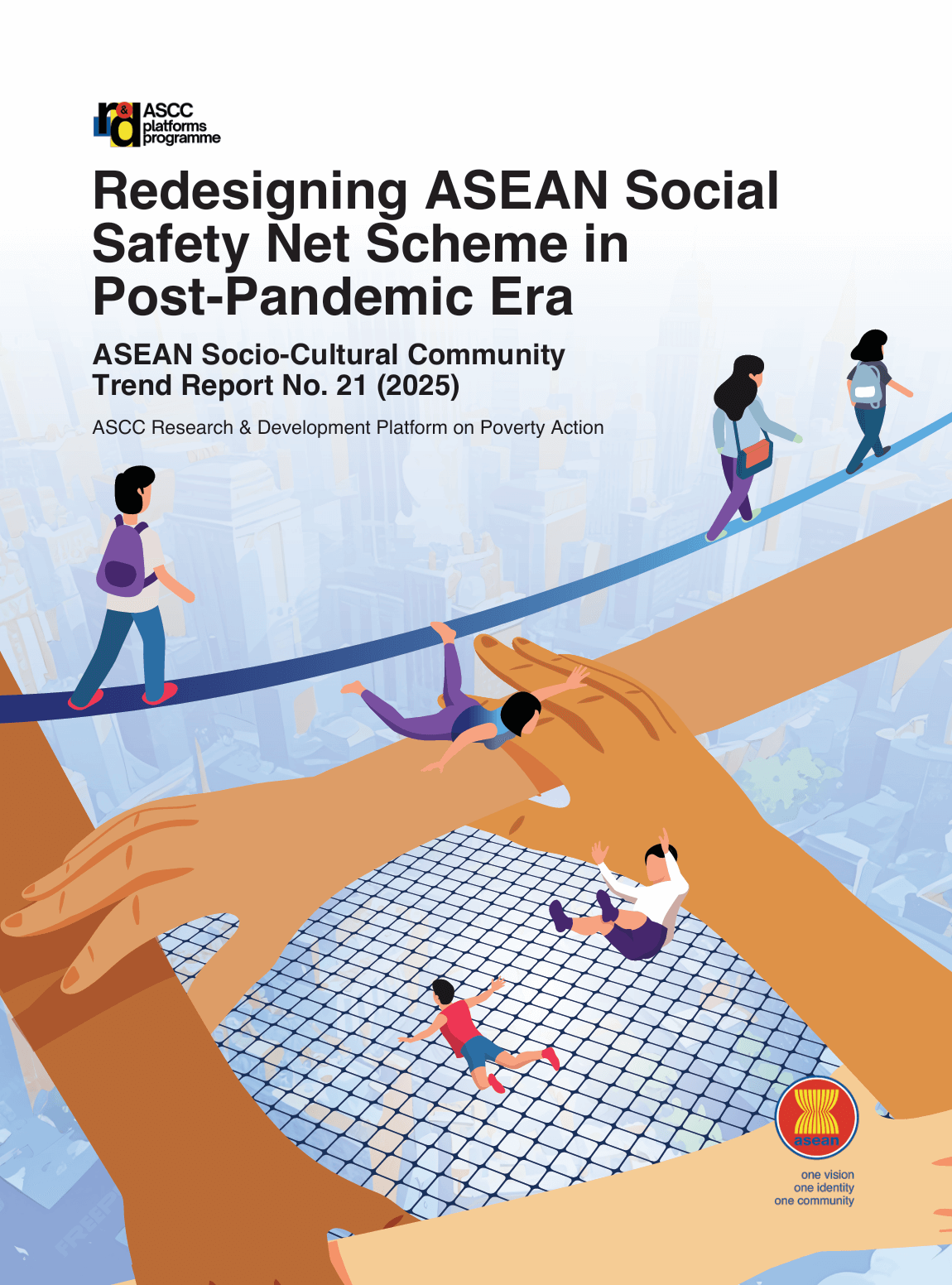

EXECUTIVE SUMMARY
Economic and public health crises, climate change, and various forms of life-changing events have highlighted the importance of social protection, particularly in ensuring the availability of social safety nets in order to provide short-term buffers amidst economic shocks. ASEAN has long affirmed its commitment to making social protection part of its focus in addressing poverty eradication. Past crises such as the 1997/1998 Financial Crisis and the COVID-19 pandemic, as well as ongoing trends such as climate change and persisting disaster risks, has prompted ASEAN to develop robust and adaptive cooperation. Most notably, AMS allocated more spending on short-term social protection measures at the onset of the pandemic than the global average.
The pandemic may also be viewed as an important catalyst in expanding the coverage and beneficiaries of social protection programmes, as well as in prompting important improvements to enhance the adaptability of social safety nets across all AMS. AMS have long expressed its commitment in strengthening their institutional and political basis to ensure the availability of social protection mechanisms. The pandemic has encouraged developments of comprehensive national frameworks or governance mechanisms, although it may be noted that such commitments do not always easily translate to expansion in fiscal space for actual budget allocation.
The pandemic has also served as a reminder for the importance of digital technologies in the delivery of social protection and SSNs, particularly as AMS moved to digitalised their respective social protection information systems. Governments in AMS had aptlydeveloped the necessary building blocks to enable such transformation.







